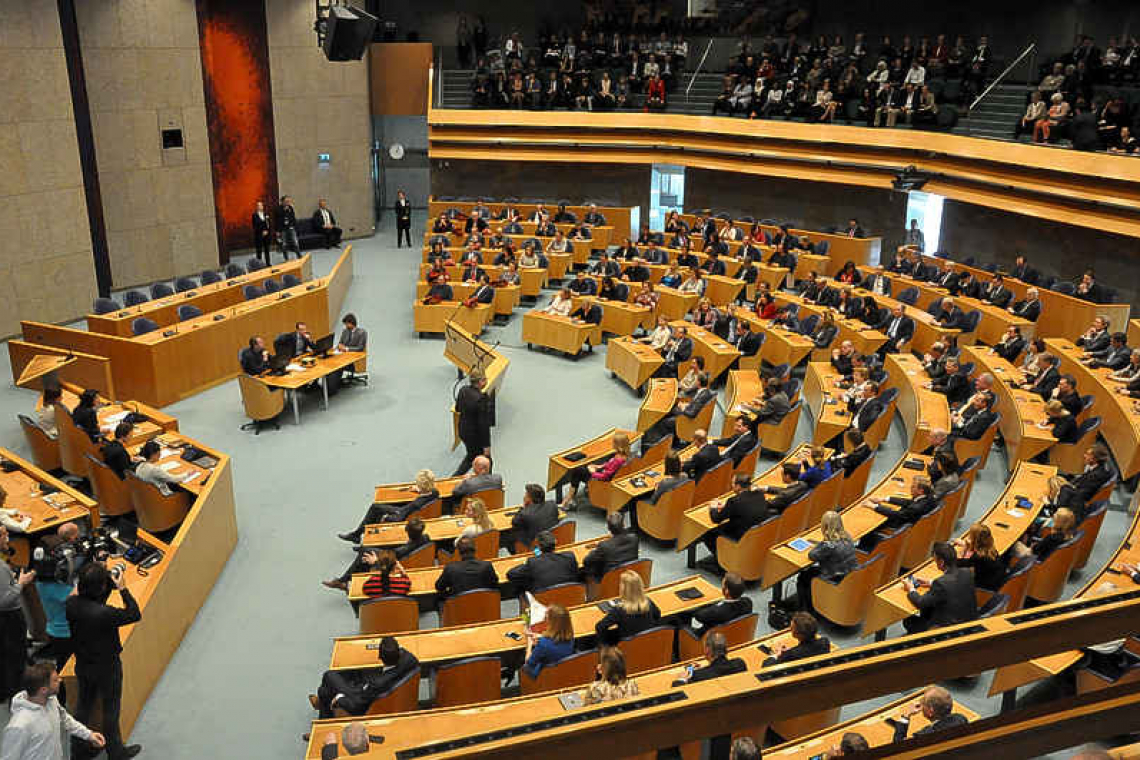Second Chamber in session
THE HAGUE--The extended economic support package that the Dutch government presented on Wednesday for the Netherlands also counts for entrepreneurs affected by the coronavirus COVID-19 pandemic in Bonaire, St. Eustatius and Saba.
“The point of departure remains that for the Caribbean Netherlands, a similar approach is selected as for the Netherlands, taking the local situation into consideration. The decision to postpone decreasing the generic regulations for the Netherlands is entirely applied to the Caribbean Netherlands,” it was stated in a letter to the Second Chamber of the Dutch Parliament on Wednesday.
The conversion to the Caribbean Netherlands of the extra input for the Qredits financing will be further worked out. As for the financial support for Dutch municipalities, a similar approach will be applied for the Caribbean public entities.
The subsidy percentage in the temporary subsidy regulation on wage costs and loss of revenue in the Caribbean Netherlands will remain the same as in the NOW regulation in the Netherlands, which is 80 per cent. The Dutch government will make an additional one million euros available for this.
Additional means will also be allocated for the Caribbean Netherlands in the form of additional island-specific policy to cover necessary costs. The three public entities will keep receiving one million euros in the first quarter of 2021 for additional island-specific policy. An assessment will be made for the second and following quarters of next year.
A potential group for support from these additional means are the dismissed employees who will lose their subsidy per January 1, 2021. The decision-taking as to the execution of this regulation will be left up to the public entities.
The subsidy regulation on compensation of fixed costs to assist entrepreneurs in paying their monthly fixed costs remains in effect. In the fourth quarter of 2020, the subsidy percentage was increased from 50 per cent to 75 per cent. This has to do with the fact that the islands are more dependent on tourism and that businesses have limited possibilities to generate alternative income.
The letter was signed by Ministers Eric Wiebes of Economic Affairs and Climate Policy, Wopke Hoekstra of Finance, Wouter Koolmees of Social Affairs and Labour, and by State Secretaries Mona Keijzer of Economic Affairs and Climate Policy, Hans Vijlbrief of Finance, Fiscal Affairs and the Tax Department, and Bas van ‘t Wout of Social Affairs and Labour.







